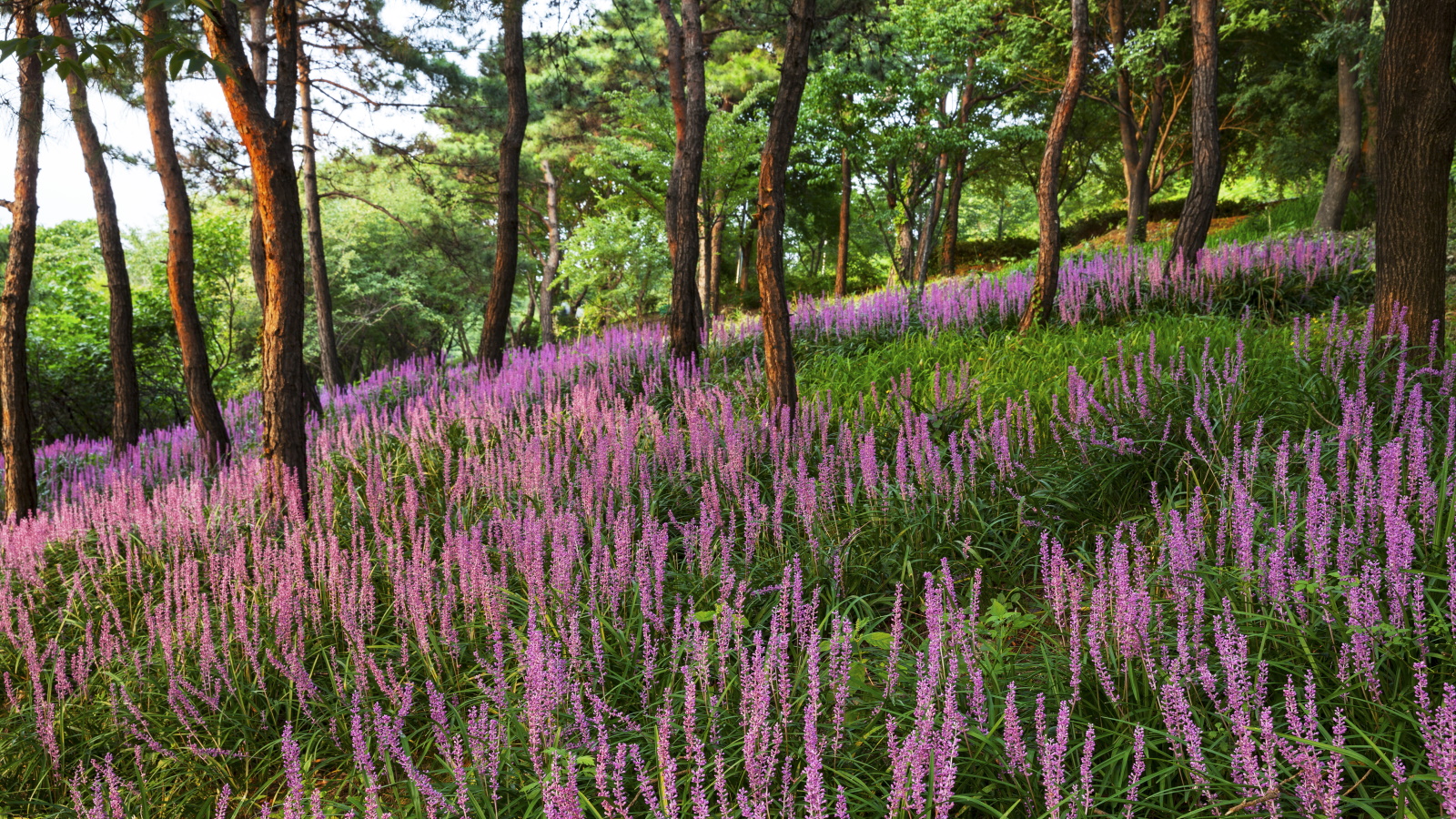
Weeding is one gardening chore that can seem relentless during the growing season. In the spring and summer months, weeds grow here, there and everywhere, readily self-seeding across the garden. You might only be away for a few days for work or on vacation, but on return, you will be greeted by dandelions and docks making themselves quite at home in the backyard.
Weeding has rightly undergone something of a rethink in recent years and we, as gardeners, should take a more ethical and considered approach to this job. While we might not want weeds to dominate the yard, using weed-killer chemicals and sprays will harm your yard and the local ecosystem, and should be avoided at all costs.
Instead, we should utilize weed-suppressing plants to prevent weeds from spreading. As a professional gardener, I have grown many of the following plants in gardens across the UK and Italy, and they have been selected for their ability to form a dense canopy that will prevent weeds from growing. Much like the best ground cover plants to stop weeds, these perennial and evergreen options are proven to keep uninvited plants from taking over. Here, I share 6 of the best plants to stop weeds.
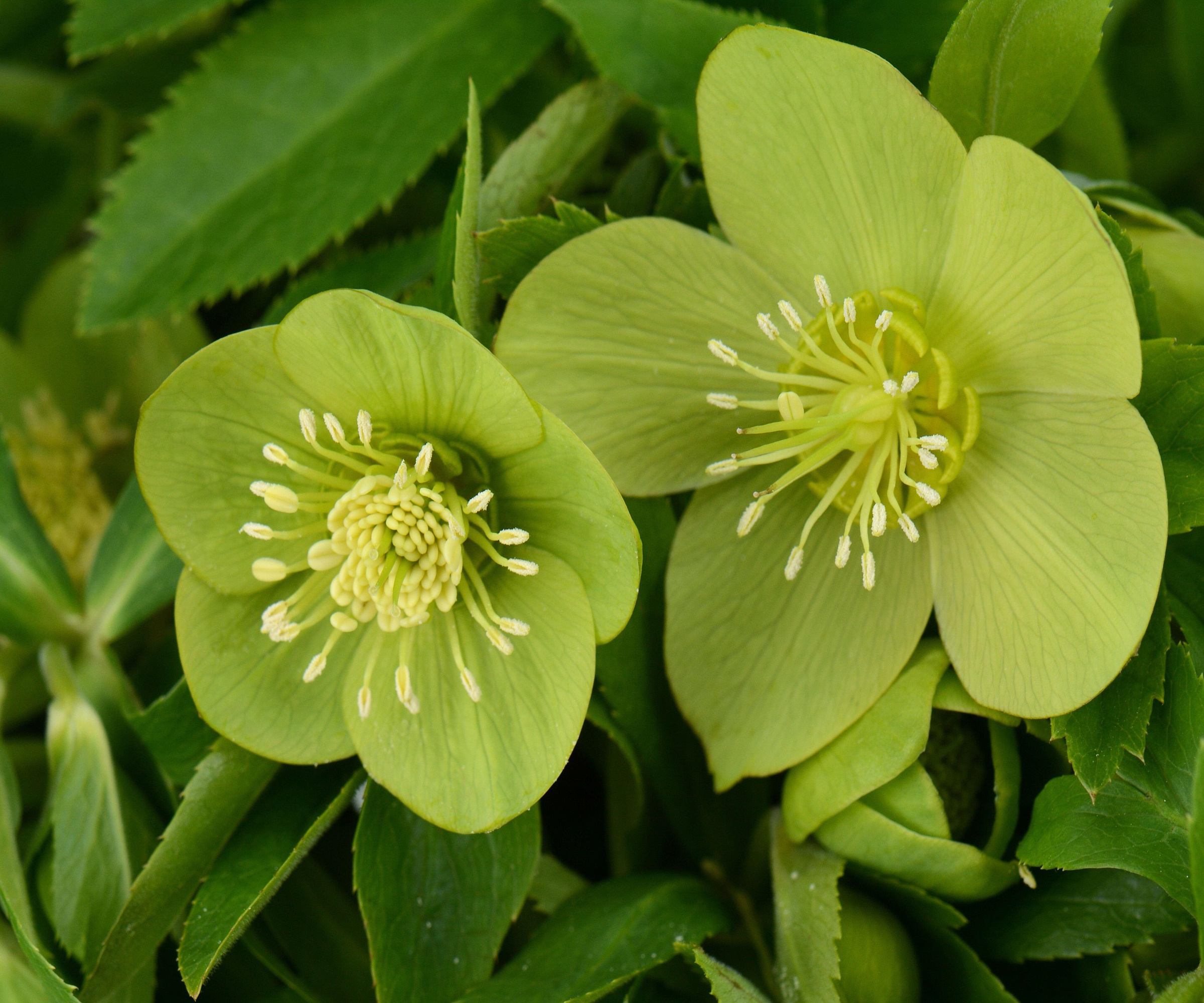
The natural approach to weed control
If you are looking for the best course of action to keep weeds out of flowerbeds, growing plants with dense canopies is a good option. The following 6 options will quickly fill out borders and beds in your yard, meaning there is less opportunity for weed seed to germinate and grow. So, put the chemicals and sprays away, and opt for this ethical and environmentally-minded approach to weed control.
1. Juniper
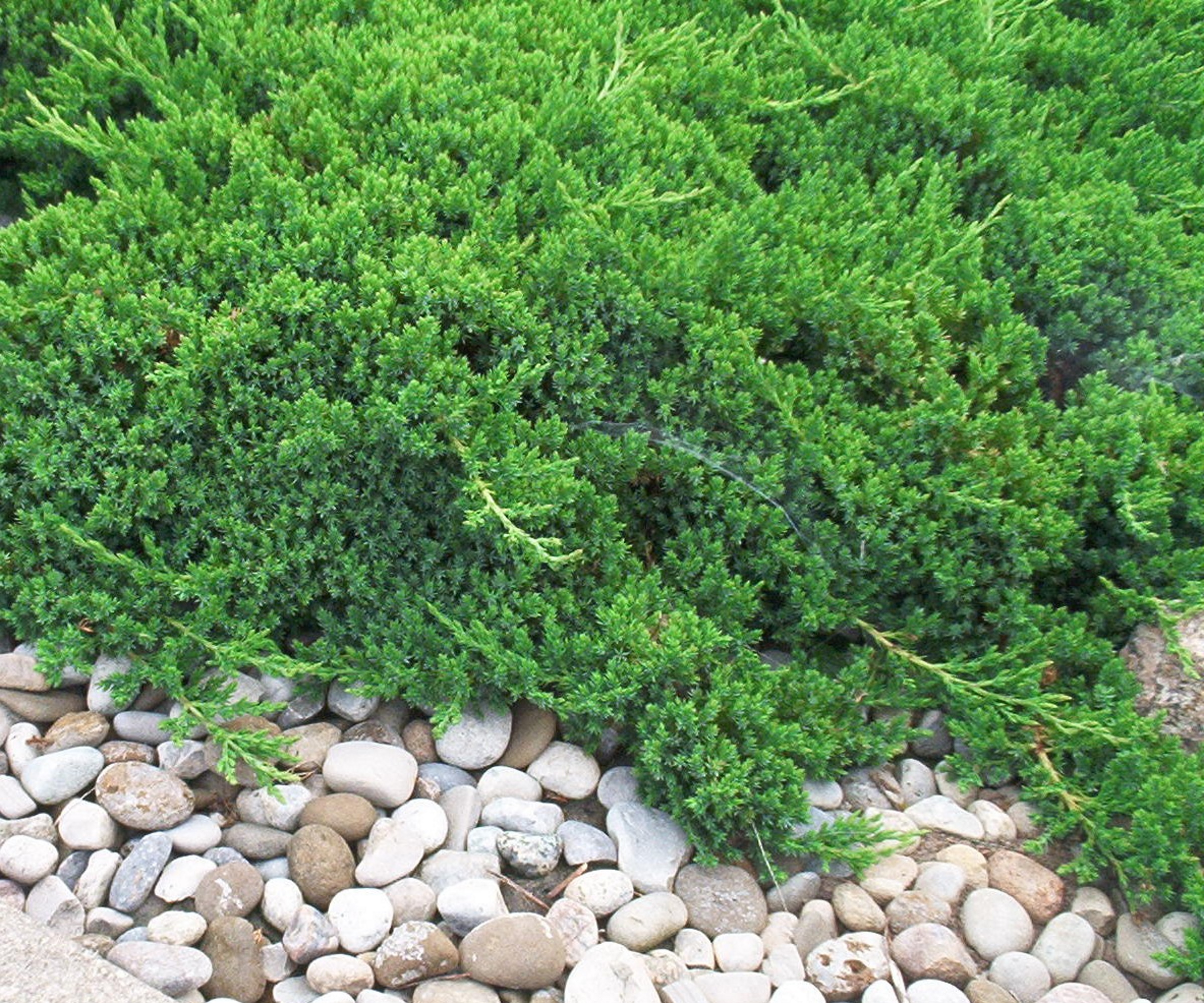
If you are looking for low-growing evergreen ground cover plants to choke out weeds, juniper should be at the top of your wish list. Juniperus horizontalis, commonly known as the creeping juniper, is an attractive foliage shrub that will provide year-round greenery, useful in challenging areas under large trees.
This hardy native plant can be grown in US hardiness zone 3 to US hardiness zone 9, doing best in a sunny spot. If you are wondering how to get rid of weeds without using sprays or chemicals, then planting juniper is a good option.
When working as a horticulturist at the Garden Museum in London, I grew this low-growing species in a dry, sunny gravel garden. With a small amount of water during the warm summer months, creeping juniper proved itself to be resilient, thriving despite frozen winters, scorching summers, and tolerating consistent wind from the River Thames. If juniper can be grown here, I think it can be grown in most yards.
Ground cover juniper plants are available to order online from Walmart.
2. Monkey grass
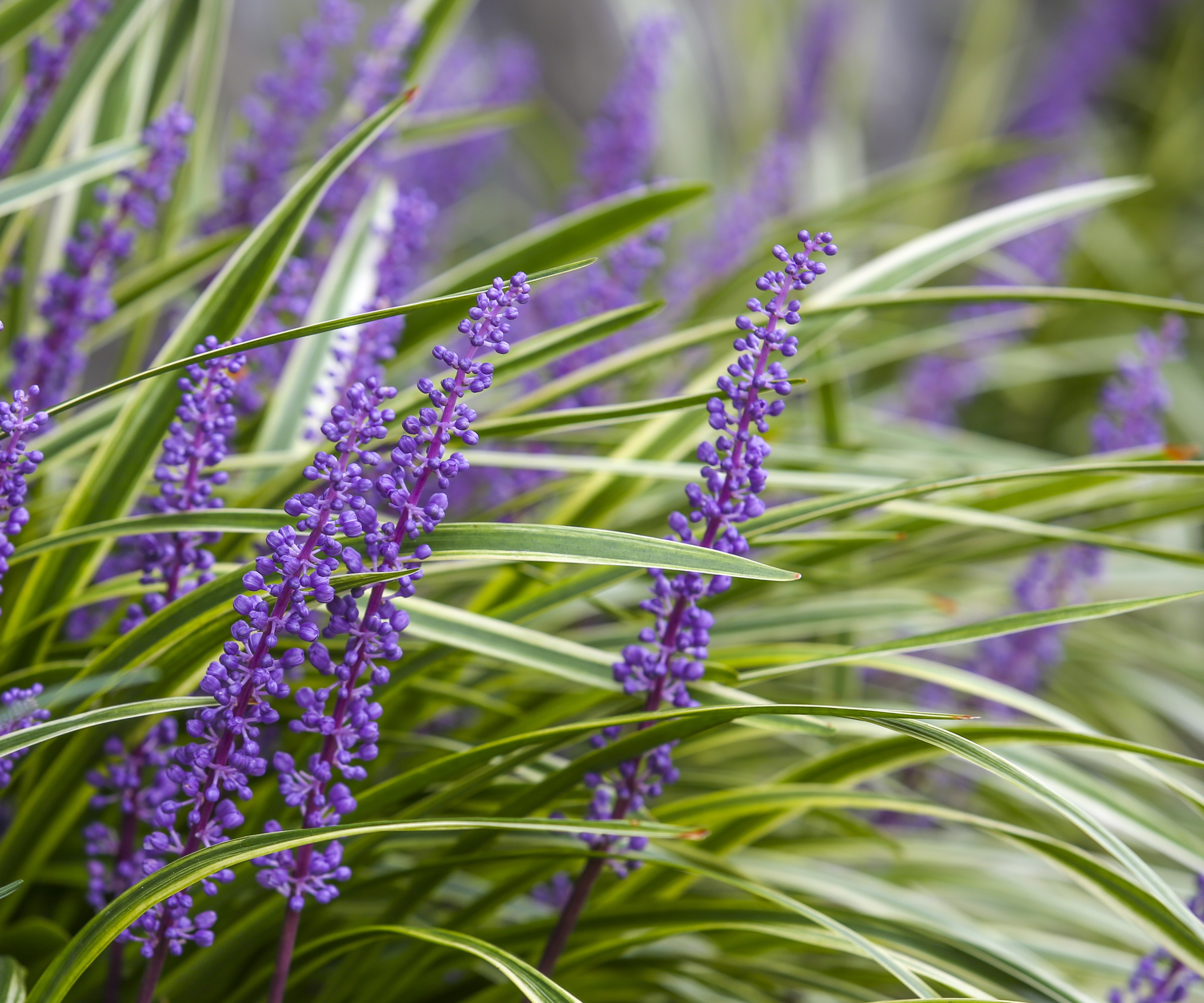
If you are looking for part-shade perennials that can easily fill a large border, monkey grass is the plant to grow. Monkey grass, or Liriope muscari, is popular for its ability to cover dry and shady spots with attractive grass-like spears, with the bonus of late-summer flowers, seen in the image above.
When considering how to grow monkey grass, this tough and versatile ground cover can be grown from US hardiness zone 4 to US hardiness zone 10, tolerating a wide range of climates and conditions.
'If you are looking for a plant that will form a dense carpet and keep weeds at bay, monkey grass is a superb option,' says Mike Murphy, garden expert and owner at You Had Me At Gardening.
'While this low-growing plant might take a year or two to establish, once it is settled and happy, it does not require much attention, easily tolerating dry periods in summer.'
Monkey grass starter plants and bare-root plants are available to buy from Walmart.
3. Ground cover roses
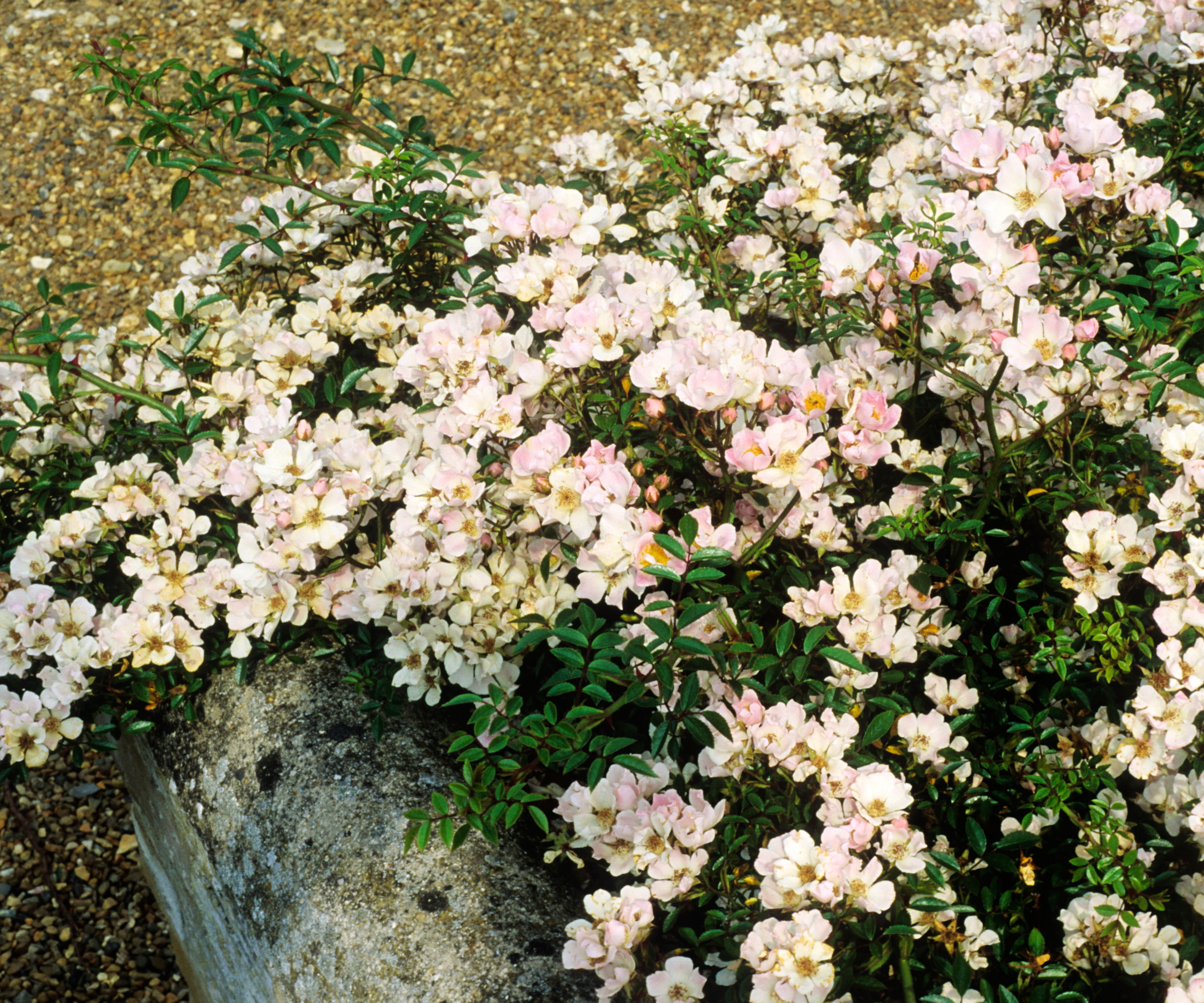
Ground cover roses, otherwise known as procumbent roses, can be very useful for gardeners seeking to suppress weeds. 'Ground cover roses are low-growing, typically reaching 1 to 2 feet tall,' says garden expert Katie Sunderlage.
'These roses, when planted close together, can form a dense and thick rose carpet,' Katie adds. 'Not only will this mean a sea of blooms, but it will help to keep weeds out of the yard, unable to compete with the canopy and root networks of your roses.
'Ground cover roses are resilient plants,' Katie adds, 'growing best in US hardiness zones 5 to zone 10.'
As with all roses, when considering how to grow ground cover roses, it is optimal to select a sunny site with well-draining soil. Fertilize your plants during the growing season using a rose feed, available from Walmart.
4. Carex
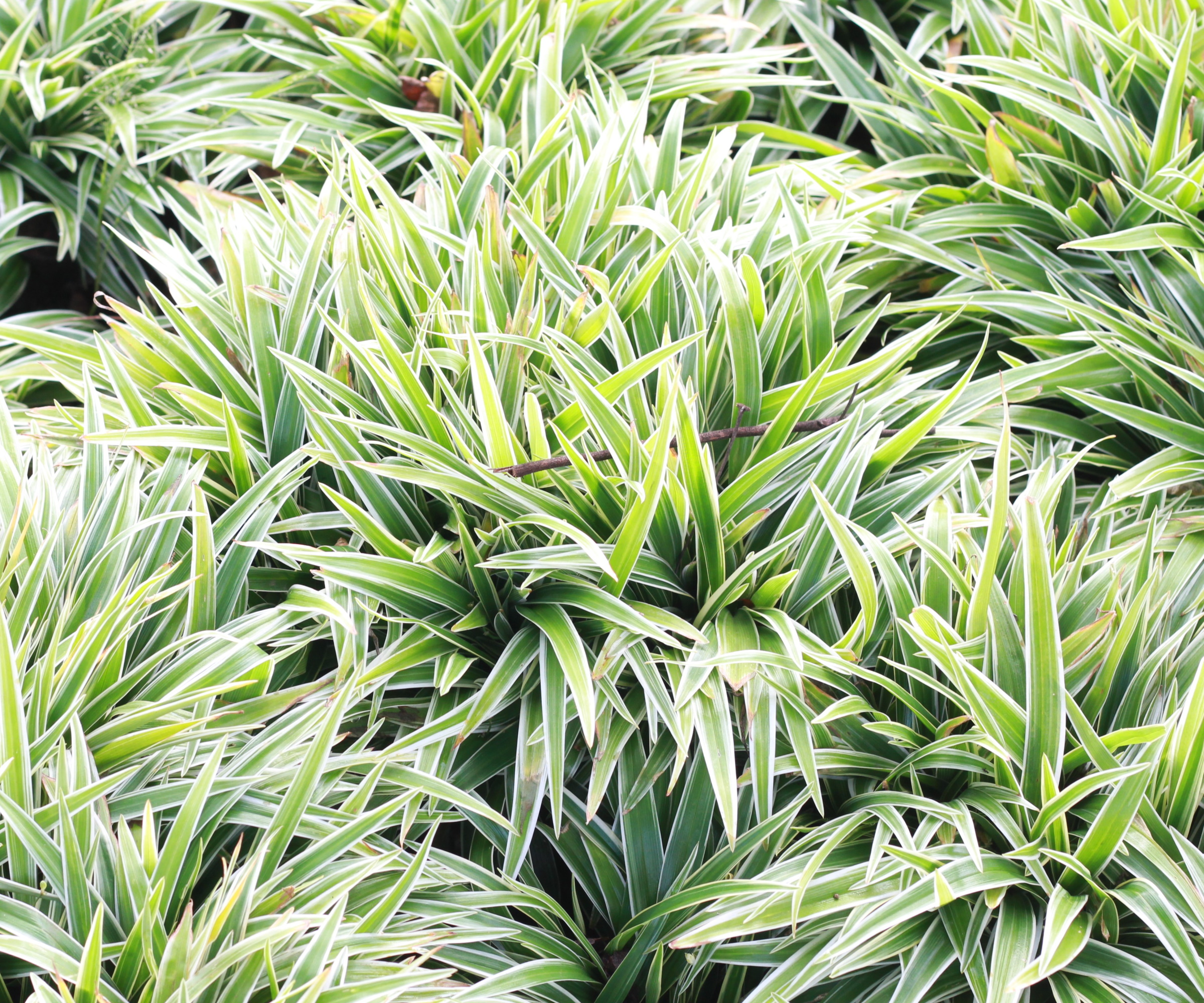
Considered one of the best native grasses, carex plants are an ideal option if you are looking for low-growing grasses to keep weeds at bay. One attractive native is the Pennsylvania sedge, Carex pennsylvanica, which is a quick grower with unbeatable fall color, turning from green to shades of orange and copper. This species can be grown from US hardiness zone 3 to US hardiness zone 8, preferring a partially shaded position.
Many carex species have a rhizomatous habit, meaning that they produce subterranean horizontal stems that push out new roots and growth. This spreading habit will make life very difficult for any opportunistic weeds.
One common weeding mistake is to leave too much space in between plants, so do not be afraid to position your carex grasses close together. Carex plants are available to order from Amazon.
Shop weeding accessories
These attractive leather gloves are heavy-duty, making them perfect for gardening. They are puncture-resistant, flexible and comfortable.
This lightweight and nimble tool is perfect for gardeners looking to attack weeds in their yard, making weed removal an easy task.
This black kneeling pad is perfect for gardeners, making those tricky weeding and planting jobs a lot more comfortable for your knees.
5. Pinus mugo
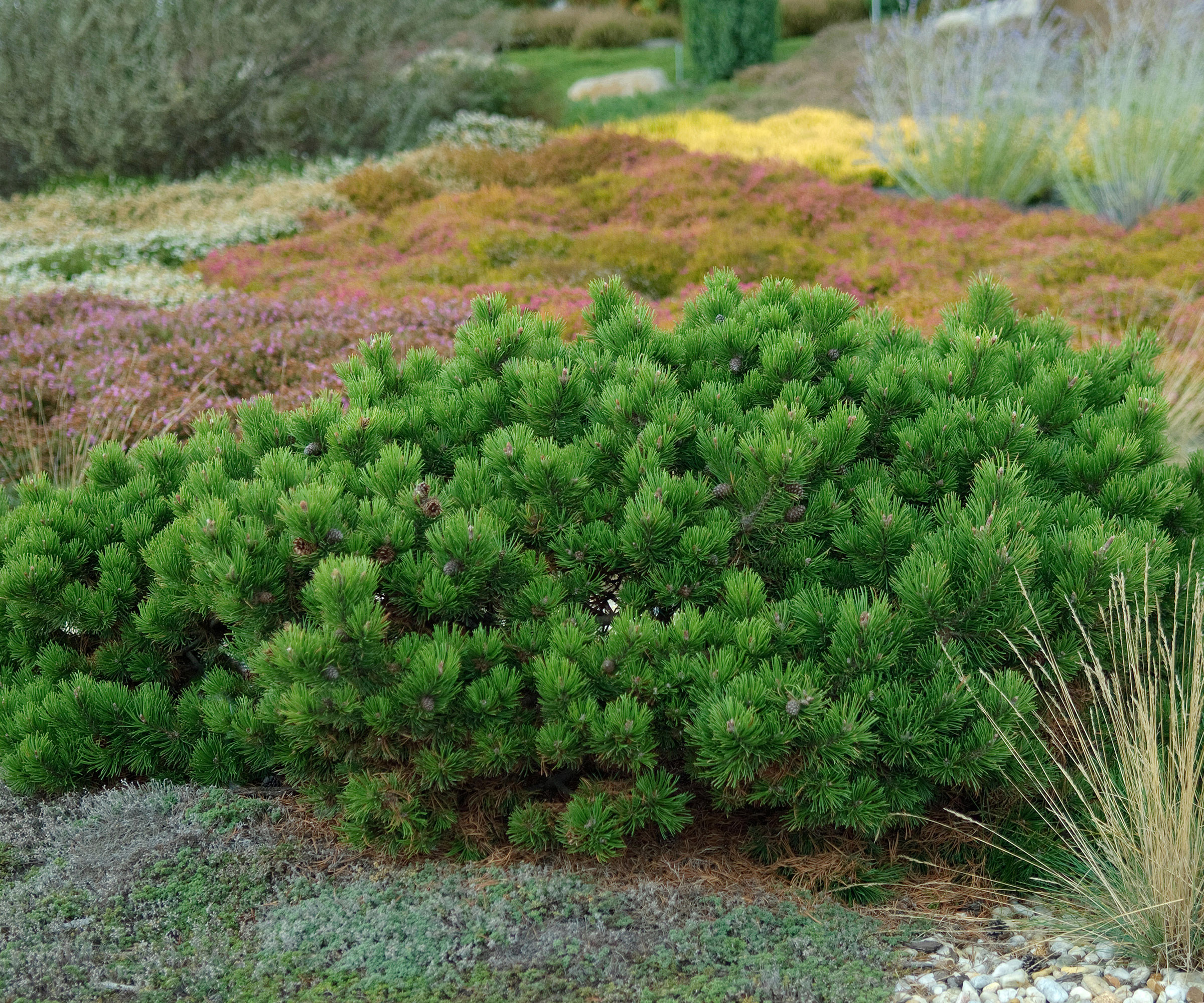
Often considered one of the best pine trees, Pinus mugo, commonly known as the dwarf pine, is notable for its compact and dense habit. Pinus mugo plants are available to order online from Walmart.
Growing best in US hardiness zone 3 to US hardiness zone 7, this low-growing shrub is ideal for those cooler yards in northerly locations. I grew Pinus mugo 'Gnome' when working as a gardener in London, popular for producing bright green needles that add year-round interest to any yard.
When planted in groups, small mounded shrubs will eventually connect, forming a cloud-like structure. However, the dwarf pine is a slow-growing shrub, so be warned, it might take several years to fill a border.
Helpfully, fallen pine needles form a mulch layer on the surface of the soil which can prevent weeds from germinating. So, while these diminutive shrubs might be slow-growing, they will eventually prove very useful in your fight against weeds.
6. Hellebores
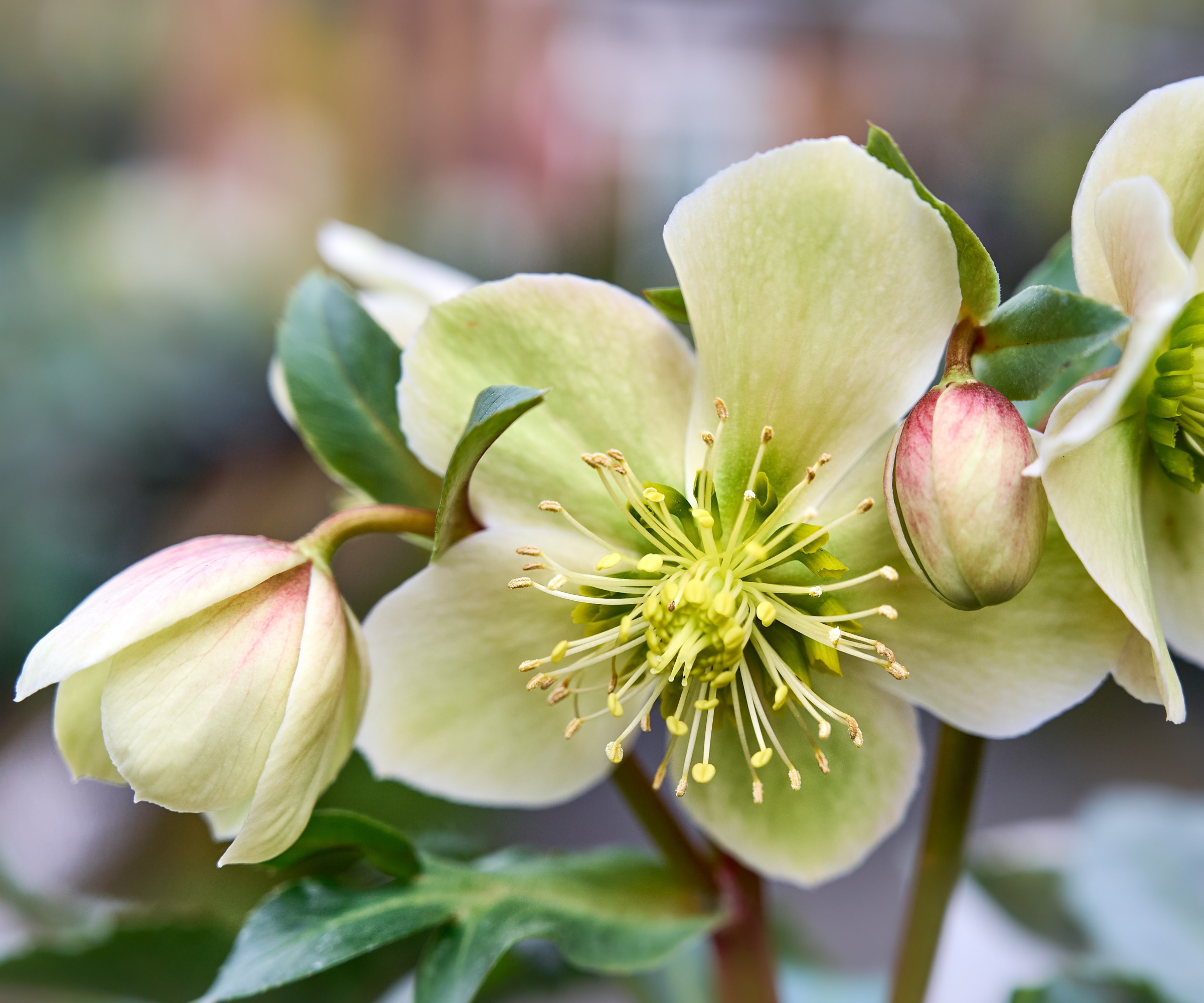
Hellebores are popular shade-tolerant perennials celebrated for their winter and springtime blooms, yet they can also be useful as a weed-suppressing ground cover. With large and long-lasting leaves, hellebores will typically form a dense canopy that can help reduce the amount of weeds growing in your yard. I recommend planting these perennials close together if you are looking to form a dense covering to prevent weed seeds from germinating.
There are many different hellebore varieties and species that are widely available, so you will be able to find one that suits your needs and preferences. Typically, hellebores grow best in US hardiness zone 4 to zone 8, and they are notable for their hardiness and resilience, producing flowers even during the frost and snow of winter.
Why not consider learning how to propagate hellebores, increasing your plant collection for free by dividing established clumps? Alternatively, hellebore plants are available to buy online from Amazon.
FAQs
What weed-suppressing plant is best for a full sun yard?
I recommend growing lamb's ears, Stachys byzantina, often considered one of the best full sun ground cover plants. The silver foliage is both evergreen and resilient, thriving when planted in direct sun. What's more, this low-growing plant will quickly form a silver carpet, preventing any weeds from growing. Lamb's ears is available to order online from Amazon.
Preventing weeds from germinating is the best course of action in any yard, and all of these weed-suppressing plants will help to stop weeds from taking hold in your borders.
While weeds can be troublesome in any yard, remember that these plants are a valuable food source for pollinators such as birds and bees. If you can, consider leaving a small patch of ground where weeds can grow to attract hungry pollinators to your plot. For more information, see our guide on flowering weeds for pollinators.







